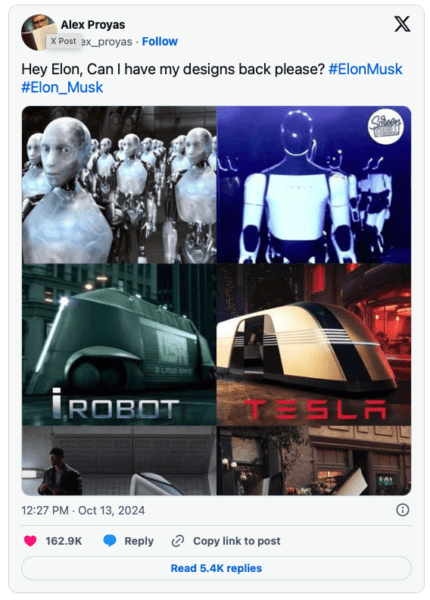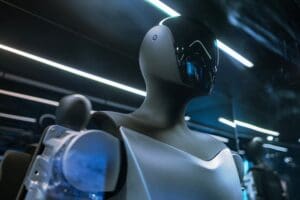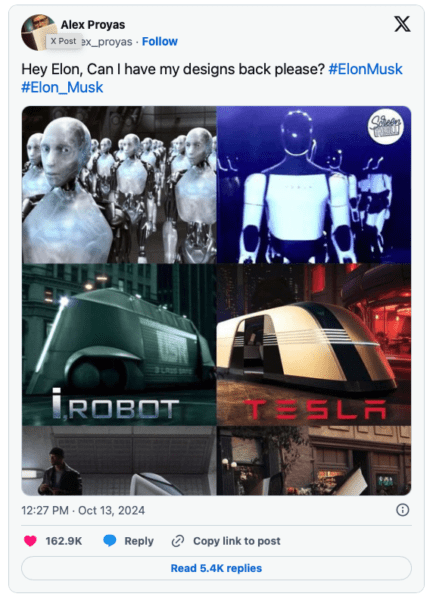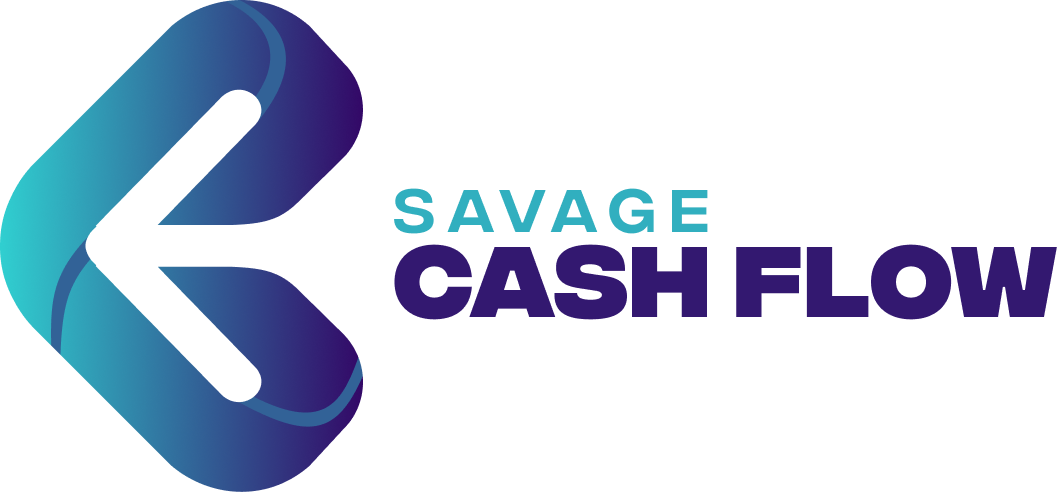
Hollywood director accuses Elon Musk of copying designs for Tesla Robots and Cybercab

Hollywood director Alex Proyas, known for his work on the 2004 sci-fi film I, Robot, has accused Elon Musk of copying design elements from the movie for Tesla’s latest products.
In a post on X (formerly Twitter), Proyas shared side-by-side images of his film’s robots and futuristic vehicles next to Musk’s Tesla Optimus robot and the newly revealed Cybercab.
Proyas captioned the post, “Hey Elon, can I have my designs back please?” referencing Tesla’s recently announced $30,000 two-seater Cybercab, which features butterfly-wing doors and lacks a steering wheel—bearing a striking resemblance to the self-driving cars in I, Robot, which was based on Isaac Asimov’s 1950 book of the same name.
Musk also showcased an updated version of Tesla’s Optimus robot, a bipedal humanoid robot, which Proyas suggested mirrors the “NS-5” robots in his film that eventually turn against their human creators. Tesla’s Cybercab is expected to enter mass production by 2026, and the Optimus robot remains under development as part of the company’s growing focus on AI and robotics.

However, some fans of the film were quick to point out that the car driven by Will Smith’s character in I, Robot was based on an Audi concept car included in the film as part of a product placement deal, making the accusation of imitation less straightforward.
Set in 2035, I, Robot follows Smith’s character, a detective wary of robots created to serve humanity, as he uncovers an AI-driven conspiracy to control mankind. The film’s themes of technology, AI, and potential human subjugation resonate with Musk’s own warnings about the risks posed by unchecked artificial intelligence.
Musk, a known admirer of Asimov’s work, titled Tesla’s unveiling event “We, Robot,” in homage to the author. Musk has previously credited Asimov’s writings with inspiring the creation of SpaceX, his space exploration company, and described the books as “really great.”
While Proyas’ comments were made in a light-hearted tone, the similarities between Tesla’s new products and the futuristic designs in I, Robot have sparked online debate. Whether these resemblances are intentional or coincidental, they highlight the ongoing influence of science fiction on real-world technological innovation.
Proyas, who also directed the cult hit The Crow, is no stranger to sci-fi storytelling, but the question remains: are Tesla’s designs a nod to his film, or is it simply a case of life imitating art?
Read more:
Hollywood director accuses Elon Musk of copying designs for Tesla Robots and Cybercab
